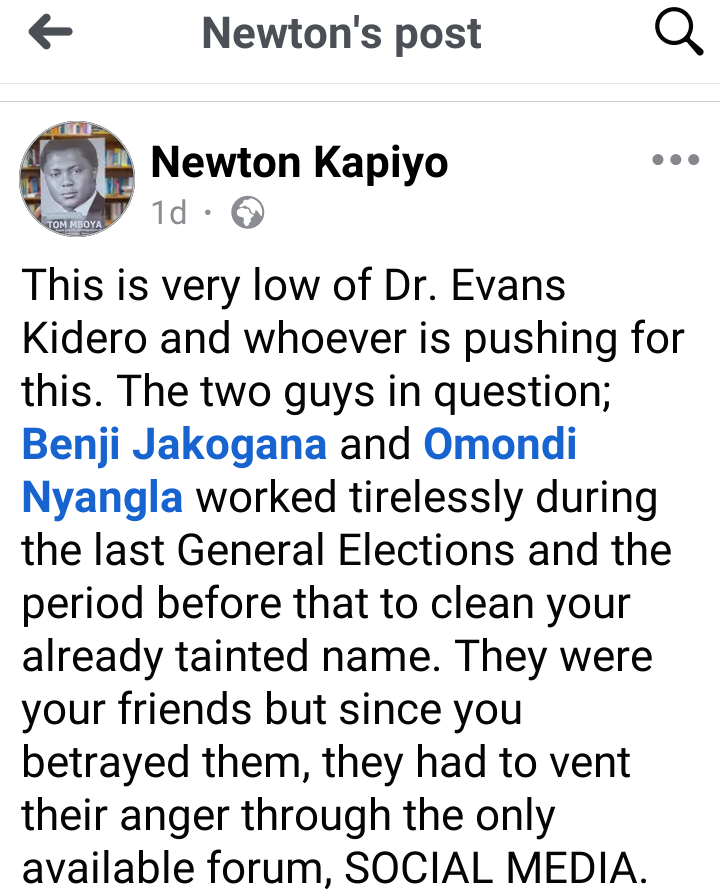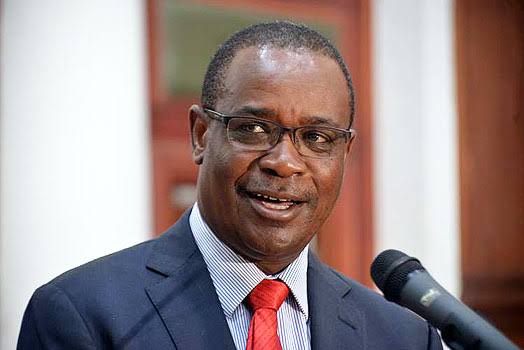The arrest of Bonface Omondi Nyangla has sparked serious debate about the state of free speech in Kenya. Nyangla was taken into custody on April 25, 2025, after posting messages on Facebook that criticized former Nairobi Governor Evans Kidero. The arrest was carried out without a warrant, and Nyangla was held at Kamukunji Police Station before being taken to court.
The authorities charged him under Section 27(1)(b) of the Computer Misuse and Cybercrime Act, accusing him of cyber harassment. The specific Facebook posts, written in Luo, allegedly portrayed Kidero as someone who is easily manipulated.

Nyangla was released on a cash bail of Ksh 400,000 or a personal bond of Ksh 1 million. The case is expected to be mentioned again in two weeks at the Milimani Law Courts.This incident has raised eyebrows because it involves a powerful political figure with a well-known history of corruption allegations. Evans Kidero served as Nairobi’s first governor after winning the 2013 elections on an ODM ticket. Before entering politics, he was the CEO of Mumias Sugar Company.
His political and professional career has been marred by several legal challenges. He has previously been arrested by the Ethics and Anti-Corruption Commission (EACC) on multiple occasions for various charges including abuse of office, money laundering, and irregular legal payments.
Despite these controversies, he remains active in politics and even expressed interest in running for Homa Bay governor in the 2022 elections.
According to various reports, Nyangla and another individual named Benji Jakogana had worked closely with Kidero during previous campaigns.
However, their relationship soured, leading to public criticism. While exact details of their work history could not be independently confirmed, it’s clear that tensions rose after the political fallout.
This background makes the timing and nature of Nyangla’s arrest seem less about justice and more about silencing a former associate turned critic. The legal action appears to be a reaction to personal and political disagreements rather than a genuine case of cyber harassment.
Many Kenyans see this case as part of a growing trend where powerful individuals use vague or overly broad laws to suppress dissent. Article 33 of the Kenyan Constitution protects the right to freedom of expression. Yet, incidents like this suggest that when criticism targets influential people, especially those with a political past like Kidero, the law is used to intimidate instead of protect rights. Human rights activists and defenders of free speech are closely following this case.
They argue that such arrests create a dangerous environment where people fear expressing opinions on matters of public concern.The court proceedings will likely serve as a test for Kenya’s legal and democratic institutions. If the case is seen as an abuse of power, it could trigger reforms in how the Cybercrime Act is applied, especially in political contexts.
On the other hand, if the court sides with Kidero, it may set a worrying precedent where criticizing a politician, even with documented controversies, can lead to prosecution. The message such a ruling sends could chill political discussion and discourage citizens from holding leaders accountable.
This case is not just about two individuals it is a reflection of Kenya’s broader struggle with corruption, political accountability, and constitutional rights.
The Nyangla case will remain a symbol of the ongoing tension between power and the people’s right to speak out.

